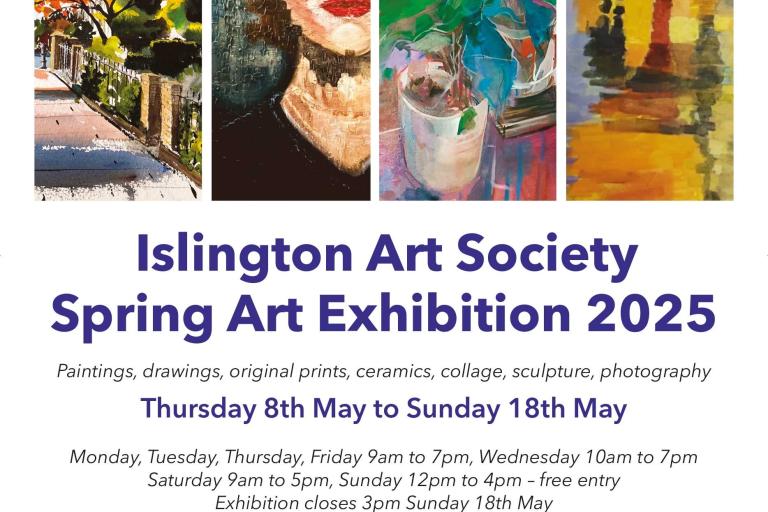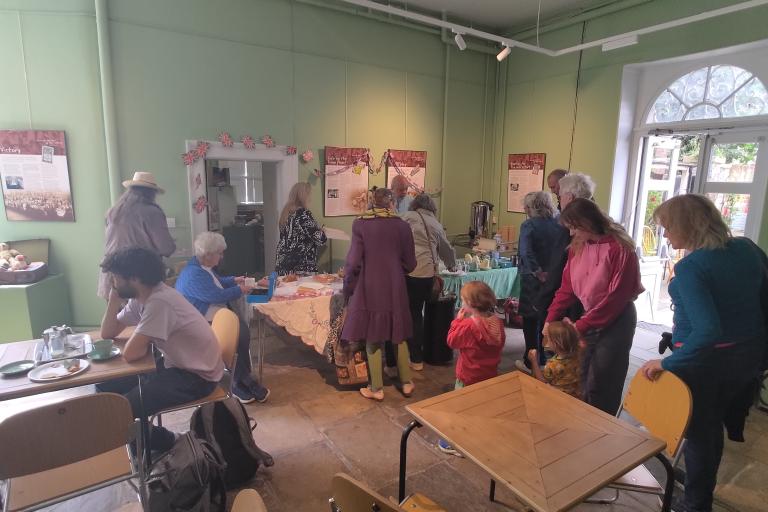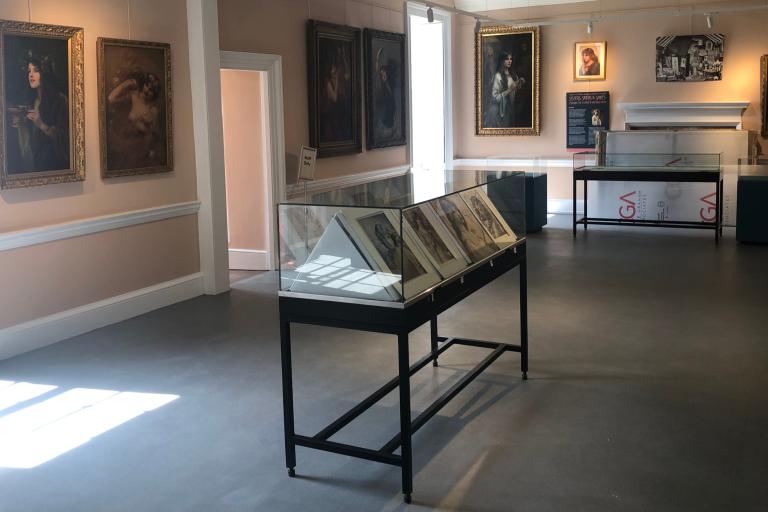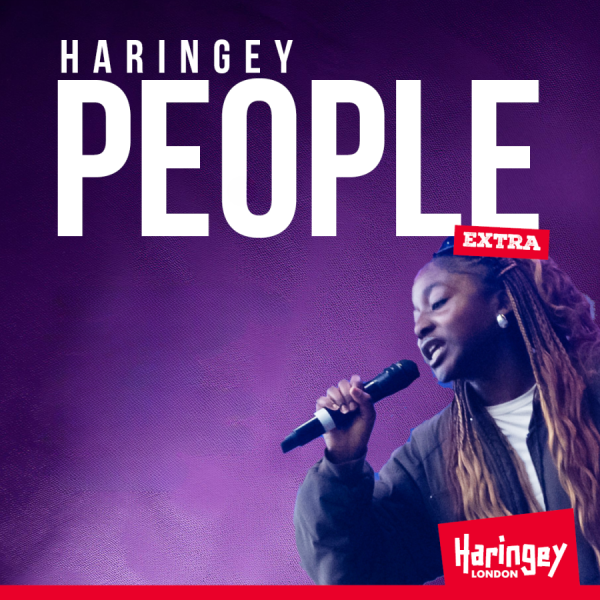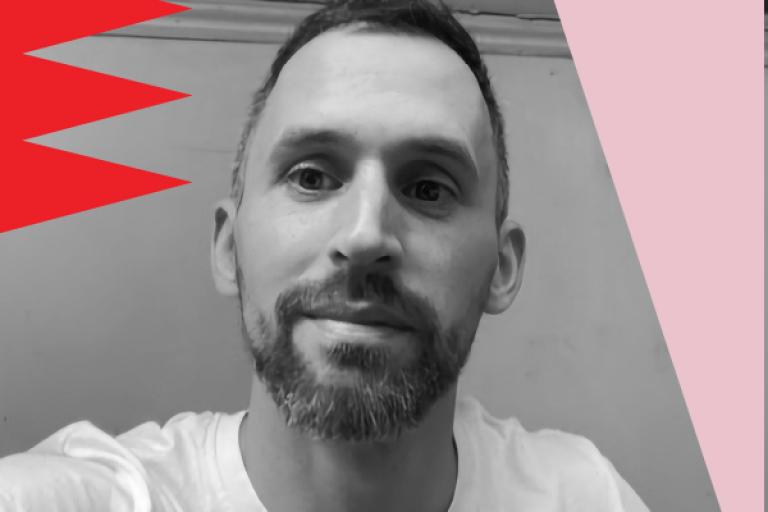
Matt and Jess Turtle set up the Museum of Homelessness in 2015. Their first public launch was at Tate Modern in 2017. Since then the museum has worked in Glasgow, Liverpool, Manchester and London, creating and producing unforgettable artistic work and campaigning for the rights of people who are homeless.
In 2023 the Museum of Homelessness moved into its first permanent base in Manor House Lodge in Finsbury Park, opening its first award-winning exhibition there last year. Its new season opens on 17 April, offering visitors an unforgettable glimpse into the world that homeless people experience.
How long have you worked in Haringey, and in which part of the borough do you work?
We have worked in Haringey since 2020, when we set up an emergency hub covering Islington and Haringey to provide food and supplies to people experiencing homelessness during the pandemic. In 2023 we moved into Manor House Lodge in Finsbury Park and opened the world's only Museum of Homelessness in spring 2024.
As a creative and activist, how has Haringey influenced you?
Prior to relocating to Finsbury Park, the museum began researching the history of the Finsbury Park area and Haringey more generally for a book we've since published called A People's History of Finsbury Park. A lot of what was been recorded historically has tended to point to Finsbury Park as an area that fell into some kind of decline. For example, a memorable edition of the "Finsbury Parker" a local newsletter published in 2001 referred to the park as living in the "armpit of three boroughs".
Yet it became clear as we spoke to people that this version of history was never the full story. The borough has a history of vibrant and radical culture making and rebellion. The park was a place where the Suffragettes rallied and it is a borough which was a heartland of music and radical action - Haringey Vanguard and its many inspiring activists highlight a very different version of the borough and inspired us. In 1977 the Battle of Wood Green spelled the end for fascists in London. There are so many examples.
What is your definition of a rebel?
To me, a rebel is someone who finds creative ways to resist in times of difficulty. We see this in our community all the time and that is inspiring.
What’s the best careers advice you’ve received?
If it doesn't exist, make it. This was advice from Carla Ecola director of the Outside Project who set up the UK's only queer shelter and community centre. We have often worked in collaboration with the Outside Project creating activities, projects and services that the community needs but that don't exist. The Museum of Homelessness is one of those projects.
When and where do you feel at your most powerful?
I feel at my most powerful when I am sharing power with the community. My leadership style is to devolve power, so as Artistic Director for Museum of Homelessness I have developed a process which supports the whole community to create our exhibitions and events.
What would be a dream contribution to Haringey’s year as the London Borough of Culture?
We already have our dream, which is the Museum of Homelessness site in Finsbury Park.
What’s the funniest thing you’ve heard or read about yourself that isn’t true?
The museum was once referred to as a libertarian tin-hat brigade - that definitely got a few laughs.
What is your favourite hidden Haringey gem?
The Spriggan which lives on Parkland Walk.
Which other Haringey creative would you spotlight and why?
We want to spotlight Surfing Sofas, our artist in residence who is Tottenham born and bred. He's an inspiring spoken word poet and for the last two years, he's been the Museum of Homelessness artist in residence.
In that time he launched an amazing album Objects and Concepts; produced by acclaimed musicians including Renell Shaw (Ivor Novello Award-winning bassist of chart-toppers Rudimental) and Camilo Tirado (Nithin Sawhney, James Holden), in partnership with Lyrix Organix (Glastonbury Festival).
Objects and Concepts is a vital concept album created by Surfing Sofas in collaboration with MoH that tells the invisible stories of UK’s homeless community. Through poetry, music and archive recordings, Surfing Sofas has done something unique. He has woven a tapestry out of museum objects - nine tracks through the lens of nine objects – by layering new meanings upon them and also sharing the original stories behind them. The result is a profound yet hopeful album that holds a mirror up to society on the housing crisis in the UK.
Readers can check out the album on Spotify and other streaming platforms.
The Museum of Homelessness is open 17 April - 1 November, select Thursdays to Saturdays from 12:30-4:30pm. Plan your visit on the museum’s website.
Want to get regular content like this straight to your inbox? Sign up for our London Borough of Culture newsletter for updates on cultural happenings right across our Rebel Borough, and information on how you can get involved as we gear up for our London Borough of Culture year.
